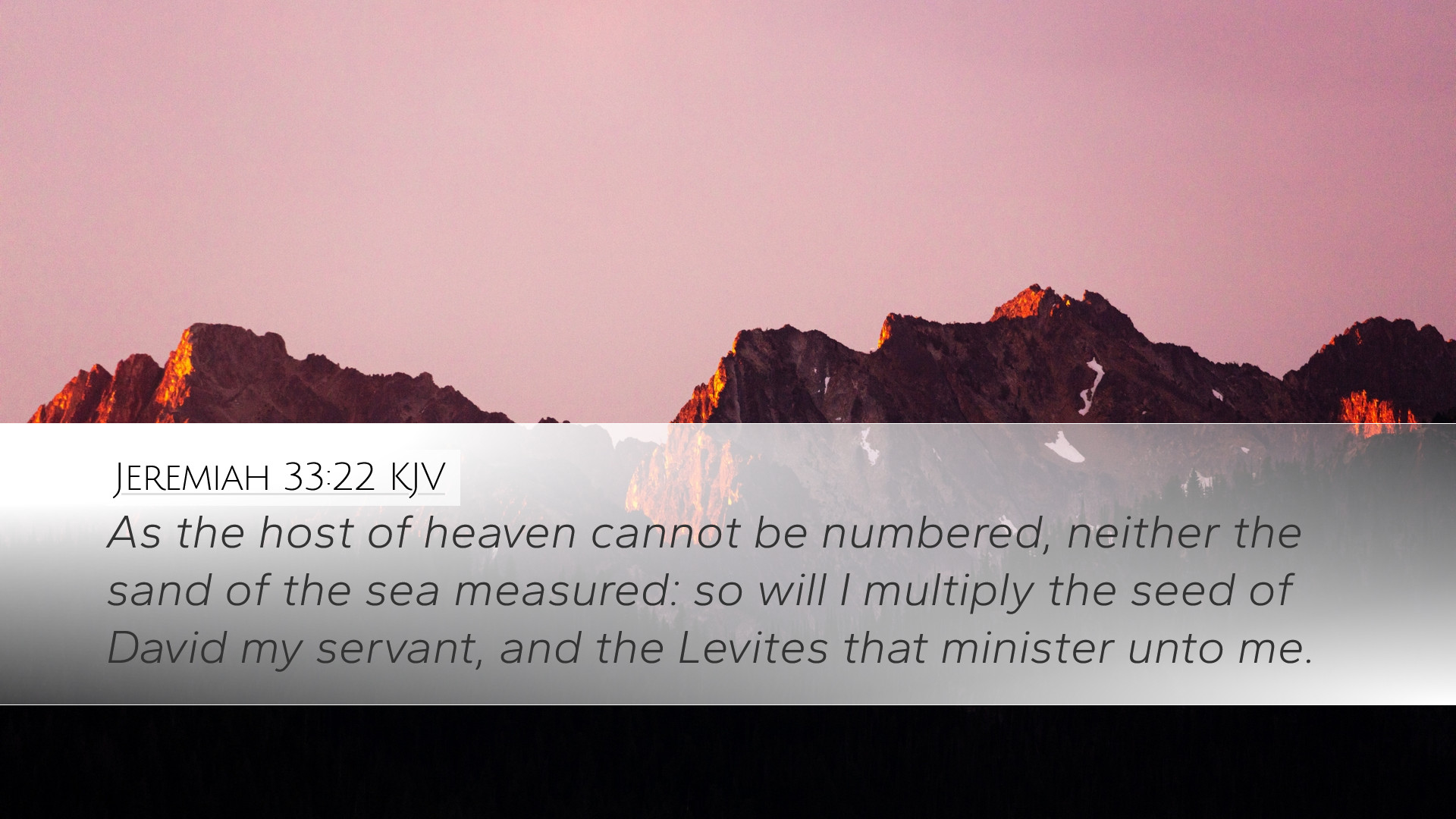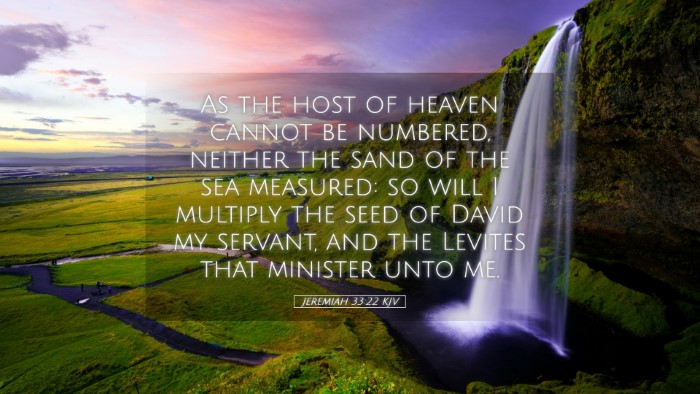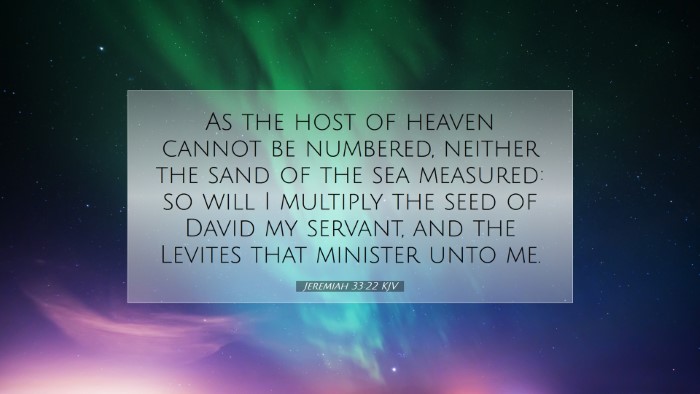Bible Commentary on Jeremiah 33:22
Verse: "As the host of heaven cannot be numbered, neither the sand of the sea measured: so will I multiply the seed of David my servant, and the Levites that minister unto me." (Jeremiah 33:22)
Introduction
In this verse, the prophet Jeremiah conveys a profound promise from God regarding the future of David's lineage and the Levitical priesthood. Through this promise, the Lord reassures His people of His unwavering fidelity and covenant love. This commentary explores several dimensions of this verse, reflecting on its theological implications as set forth by well-regarded public domain commentators.
Context and Background
Historical Context: During Jeremiah's time, the kingdom of Judah was facing imminent destruction due to its idolatry and disobedience. The people were exiled, and the future appeared bleak. However, Jeremiah's message is not only one of judgment but also of restoration and hope.
Covenantal Promises: The reference to the seed of David and the Levites alludes to God's unbreakable covenant with His chosen leaders. This promise reassures the faithful remnant in Judah that God has not forgotten His people despite their dire circumstances.
The Multiplication of the Seed
Matthew Henry's Insight: Henry emphasizes the vastness of God's promise by comparing it to the innumerable host of heaven and the measureless sand of the sea. Just as these entities are beyond human calculation, so too is God's ability to multiply His promises.
Albert Barnes' Perspective: Barnes elaborates on the symbolic significance of 'the seed of David.' He interprets this multiplication as not only a physical descent but also a spiritual lineage, indicating the coming of the Messiah from David's line, culminating in Christ’s reign.
Adam Clarke's Commentary: Clarke, in his exposition, reinforces that God's promise encompasses both spiritual and numerical growth. He suggests that while the physical descendants of David may seem like a remnant, God’s plan ensures a multitude that will ultimately reflect His glory and faithfulness.
The Role of the Levites
The Levites' Ministry: The promise extends to the Levites, emphasizing their critical role in worship and service before God. The Levitical line was crucial for mediating between God and His people.
Henry's Take: Matthew Henry notes that this promise reassures the Levites of their continuing importance. God will ensure that their number and influence grow as part of His grand design for restoration.
Barnes' Observation: Barnes links this multiplication of Levites with the restoration of genuine worship and obedience among the people, affirming that the divine schema involves both priestly and royal lines working in unison.
Theological Implications
The promise in Jeremiah 33:22 is rich with theological significance. It illustrates the nature of God's promises—limitless and unquantifiable. It also underscores the continuity of God's redemptive plan through history.
- Divine Sovereignty: The assured multiplication signifies God's sovereign control over history and His people.
- Hope in Restoration: For those in despair, this verse serves as a beacon of hope, affirming that God can bring about restoration even from desolation.
- Messianic Fulfillment: The reference to the seed of David points forward to the ultimate fulfillment in Jesus Christ, establishing His kingly line as eternal.
Practical Applications
This verse also holds practical applications for modern believers:
- Faith in Adversity: Just as Jeremiah’s audience was encouraged to hold onto hope, believers today are called to trust God's promises even in difficult circumstances.
- Call to Ministry: Understanding the Levites’ role invites believers to consider their own call to serve God and others faithfully.
- Multiplication of Ministry: The idea of multiplication encourages churches and ministries to pursue growth and faithful service as a response to God’s grace.
Conclusion
Jeremiah 33:22 is a powerful reminder of God's incredible promises and His unending faithfulness to His people. Through the insights of Matthew Henry, Albert Barnes, and Adam Clarke, we gain a deeper appreciation of this verse's richness. Pastors, theologians, and believers are called to reflect on the promises of God in their lives, acknowledging His ability to multiply blessings and bring hope for the future.


